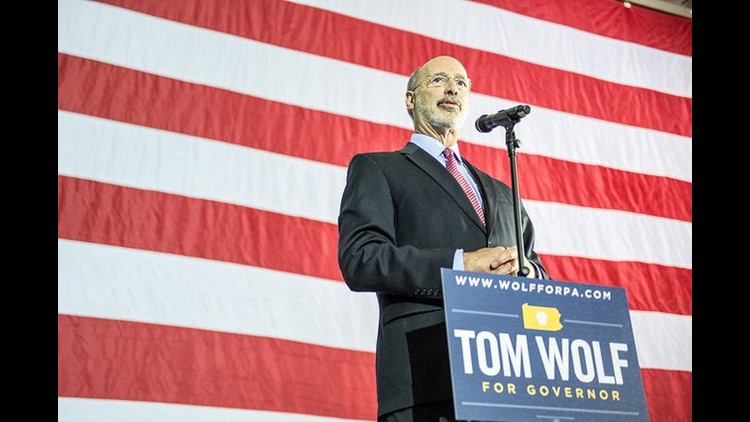HARRISBURG, Pa. — Today, Gov. Tom Wolf announced that his proposed 2017-2018 budget will include $10 million to provide live-saving Naloxone to first responders and law enforcement across the state. The money will be available through the Pennsylvania Commission on Crime and Delinquency.
“Expanding access to Naloxone is crucial in continuing our fight against the opioid epidemic,” said Governor Tom Wolf. “We cannot help our family members, friends, neighbors, and fellow citizens get the treatment they need if they die from an overdose of prescription opioids or heroin. Since November of 2014, more than 2,320 opioid overdoses have been reversed by first responders across Pennsylvania. As this terrible disease continues to devastate our families and communities, we must ensure the widespread access of Naloxone.”
Expanding access to naloxone goes hand-in-hand with the Wolf administration’s “warm-handoff” policy. A warm-handoff is a process in which a person who is identified as having a substance use disorder and/or overdose survivor is transferred from a hospital emergency room or other healthcare provider to a drug treatment provider. Together, Naloxone and the warm-handoff are saving lives across Pennsylvania, and are helping to get those suffering from substance use disorders into treatment, where they can begin their recovery.
“Expanding access to naloxone, a life-saving medication, is critical to giving Pennsylvanians a chance to get the treatment they need,’’ said Attorney General Josh Shapiro. “It’s part of the comprehensive plan we need to fight the heroin and opioid epidemic that is harming so many Pennsylvanians. We need to be merciless with drug dealers, understand addiction is a disease, not a crime, and work with the medical and pharmaceutical communities to help curb the abuse of opioids that is fueling this epidemic.”
“Cops become cops because they want to protect and serve their communities. I can’t think of any greater service than saving someone’s life,” said Pennsylvania Commission on Crime and Delinquency Chairman Charles Ramsey. “It is our duty as government officials to ensure that law enforcement has the tools they need to do their job and that is what naloxone is.”
“The opioid crisis is a public health emergency from which no community is immune. Tackling this challenge involves understanding opioid addiction as a chronic disease that requires prevention, intervention and treatment,” said Dr. Valerie Arkoosh, Chair of the Montgomery County Board of Commissioners. “At the same time, you can’t get into treatment for your addiction if you die on the streets or in your home as a result of an overdose. That is why making Naloxone available to law enforcement, EMS, hospital workers, pharmacies, schools, and individuals at risk of an overdose is integral to any effective strategy to combat this epidemic.”



